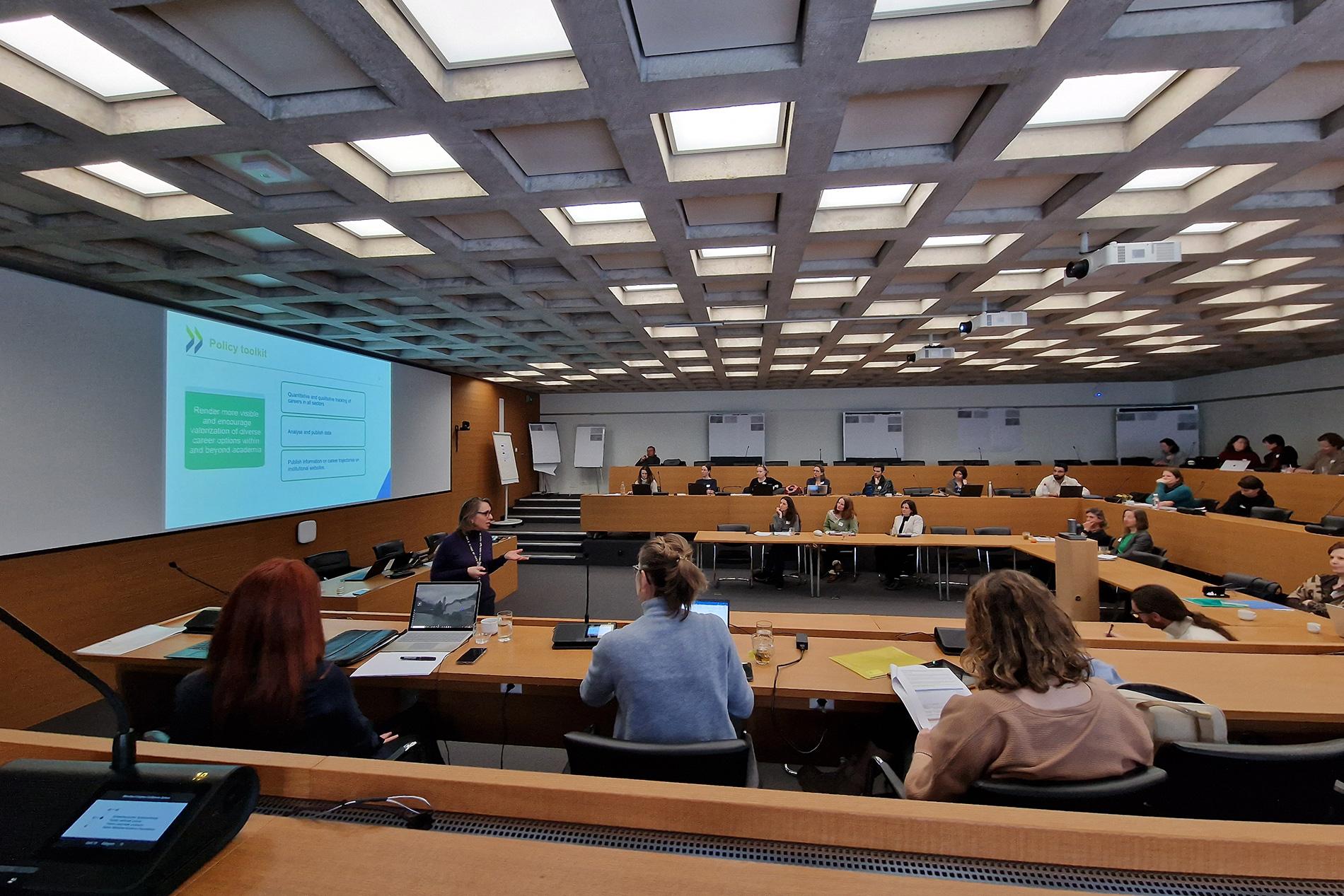A day of discussion to help scientists embark on non-academic careers

Experts in providing support for doctoral students met to assess the situation regarding non-academic career paths and work out future approaches.
How can PhD holders best be helped along their career paths – particularly in the public and private sectors, where their future employers are generally to be found? On 9 January 2024, the SNSF hosted the first national discussion day on non-academic careers, bringing together experts in careers advice, support and research. It was a unique opportunity to discuss existing instruments, areas of need and future approaches and support for transitioning to careers outside the academic world.
The event was organised by the Graduate Campuses of the Universities of Basel, Lausanne and Zurich, with the support of the European platform Euraxess and the SNSF. It brought together some fifty experts working at the Graduate Campuses, at career centres and in doctoral programmes at Swiss universities plus other participants working in this area in several Swiss research-related institutions. A number of early-career scientists were also present.
Initiating a national dialogue
Several conclusions were drawn from the meeting. It was gratifying to note that many innovative initiatives already exist to help PhD holders pursue careers in the public and private sectors. These take into account the diversity of career paths and disciplines as well as the challenges faced by recent doctoral graduates embarking on a career. They also provide tools that help the persons supervising doctoral and postdoctoral students to hone their skills and improve the support they offer.
However, it was felt that the universities should be more systematic in the way they track career paths. This information is important for highlighting the diversity of scientific careers and for strengthening communication about the skills acquired when doing a doctorate or postdoctoral studies. There is also a need to develop a framework for meetings and discussions between the academic world and potential employers. Finally, attendees expressed their willingness to initiate a dialogue on this topic at national level to assess existing practices and strengthen those that are most beneficial.
The SNSF currently supports over 6,600 doctoral students and around 4,200 postdocs. In so doing, it promotes early-career researchers in all disciplines and for all areas of society. Its intention in hosting this event was to help launch a debate among multiple institutional stakeholders on a topic that is crucial for the futures of early-career researchers. Consideration should be given to making the event a permanent fixture – as an annual meeting, for example.